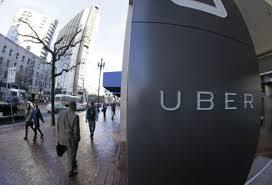
More and more businesses who author sustainability plans to survive in the new marketplace are also creating blueprints that activate and drive positive social change.
Companies you might not suspect are forwarding substantial initiatives, such as the Coca-Cola Company, whose sustainability plan identifies three key elements to help their enterprise grow. They call the elements the "Three Ws": Women, Water and Well-Being. As it relates to women, Coca-Cola strives to enable the economic empowerment of five million women entrepreneurs within their global value chain by 2020. Why is this so important?
According to Christine Lagarde, Managing Director of the International Monetary Fund, who addressed leaders in Brussels last week: "Worldwide, there are about 865 million women who have the potential to contribute more fully to the economy...if you care about greater shared prosperity, you need to unleash the economic power of women."
The Economist Intelligence Unit (EIU), an independent business within The Economist Group that provides country, risk and industry analysis across 200 countries, reported that Chicago is on track to be one of the 10 most economically competitive cities in the world by 2025. One of the factors in determining competitiveness is "Women's Economic Opportunity."
The YWCA of Metropolitan Chicago CEO Dorri McWhorter has joined in this momentum to transform the way that the YWCA collaborates across sectors to address economic empowerment and enhance the quality of life for the 200,000 women it serves. Among its social innovation initiatives is a partnership with Uber called Drive to Thrive.
The partnership will connect 5,000 women with flexible earning opportunities through Uber's ridesharing service. Consider that if each of the 5,000 women recruits drive just a few hours a week, she could earn an average of $500 per month. Collectively, that equates to a $30 million boost for Chicago's economy in a single year!
"Women should be at the forefront of new sectors that support flexible working hours, innovation, and cutting-edge technology practices. By 2020, more than 40 percent of America's workforce will be part of this independent, freelance and flexible economy, mirroring trends we have seen around the world. Chicago is already a leader --and women should be leading the charge." says McWhorter.
Through experiments in microloans and entrepreneurial training for women in India, we have learned another fact. That is, in addition to growing the economy, giving women more power leads to wider-spread access to public goods, such as water and sanitation. When women lead, the whole community benefits.
The more aware we are of how to meaningfully connect the dots of social innovation to women's economic development, the better off we all are in our interconnected global community.